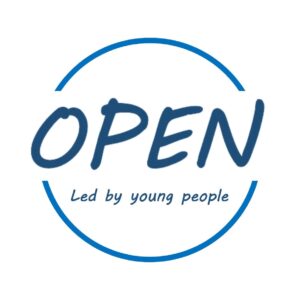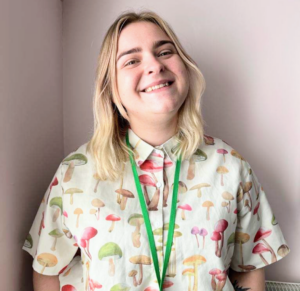Between 2021-2023 with funding from the Ideas Fund, young people from the OPEN Project in Shetland were matched with professional researchers to support them to conduct research firstly on a space for young people and then the impact of alcohol and other drugs.
In this blog series, one of the peer researchers for the project Shannon Boston is sharing their research journey, what they’ve learned, what tools they’ve used and what support they received along the way.

So it’s July 2023, the summer holidays are well and truly here with its muggy days.
At the end of my last blog I told you about our updated workshop that we planned to put into action after the Easter break. We came back after the Easter break put the workshop into action and ran it with some young people. The updated workshop method we used like Mentimeter and the survey with the Dixit cards gave every participant a chance to feedback, we are aware not everyone wants to speak up in group settings so we also ensured that the quieter voices in the room had a voice by using the updated workshop plan.
We also had a meeting with Wendy McConnachie a member of our research team who is the Alcohol and Drug Development Officer with NHS Shetland, the meeting was super productive we discussed how the project was progressing and explained how we were really struggling to up our numbers for our survey. She left the meeting with the promise that she would get the survey shared on ShetNews, which really helped our survey numbers once the article was published. We also had some help from the Robin Calder who got PSE teachers to circulate the survey in class rooms during PSE lessons, this was perfect as it meant every age group we had hoped to capture we have now managed to succeed in hearing from thanks to the help of our local community. The success we have had with the survey really is a positive example of partnership work within our community, the help we had circulating the survey really is a testament that people do want to make a positive impact within Shetland and value our young people’s thoughts and opinions.

Our research team members who were working on their Participative Democracy Certificate (PDC) have been doing extremely well, one member of the team has conducted a survey amongst their peers after choosing a research question and also creating an online survey. Another made up a question box and took it to a couple venues to ask their peers to give their feedback. Together we analysed their findings and the feedback they received was rich and the findings will be used in our final report.
We also had a research team meeting at the start of June, we discussed the volunteers PDC progress then did some analysis and coding as a group with all the information we had gathered so far, we weren’t able to get every bit of data analysed as a group but we did however get great input for what the research team had time to cover and they really got to grips with what the project is teaching us. Learning together is so valuable and challenges us professionally to make sure that we are led by the research team but also passing on the skills that we are learning whilst on the ground conducting the research.
By early June the time for focus groups, workshops and interviews had come to an end. I could begin going back over some of the coding and analysis that we had done along the way either ourselves or with the research team. I coded in the paper method that I have mentioned in previous blogs and upon completion I proceeded to input the information onto an excel sheet, by the end of it we had 399 separate codes however many of these are under similar themes such as education or support services if I hadn’t kept specifics within the codes so that we could refer back to peoples interviews or focus groups/workshops for reference at any given time that it is requested.
Our survey still needs to be coded, I have been having a play around with Chat GPT as a potential tool for finding the themes within the survey and then coding the data with those codes to see if it makes my work more efficient.
It would be really interesting to know if this is a tool that can be successfully used within research, especially if it means we can do more work for our communities.
Jennifer one of the professional researchers is popping along at the end of July to help me with coding the survey findings also.
Once the summer break is over and we are all back in the office together Amy and Jennifer our professional researchers have a planned visit to help us write up our final report for the Alcohol and other Drugs project for presenting back our findings. We have already been asked by the Shetlands Children’s Partnership to share our findings which is really encouraging to see the community taking such a keen interest in young people’s views. Currently we haven’t got any other presentations lined up but we will have until the end of October to share our findings so I am hopeful we will reach a wide range or groups and also be able to give young people plenty of chances to hear the findings.
I am so thankful for the support we have and so proud of our amazing volunteers for all the amazing work and effort that they have put into the project. Also the young people and adults within our community that have contributed or helped arrange time with young people has been truly wonderful, it feels as though we really are building great relationships within all aspects of the community the more chances that we get to conduct peer research projects which we couldn’t be more grateful for.
This blog is part of a series, if you enjoyed reading part four, you can find the other parts of the series here.